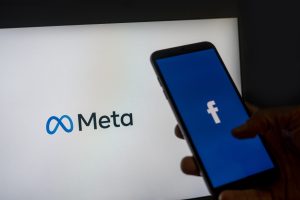Meta, the parent company of Facebook, has rejected a recommendation from its Oversight Board to suspend the account of former Cambodian Prime Minister Hun Sen for breaching its policy on incitement.
In June, the Oversight Board, a panel of independent experts, called for the Cambodian leader’s busy account to be suspended for six months over a livestreamed speech in which he threatened his opponents with violence.
In a statement yesterday, however, Meta said a long-term suspension “would not be consistent” with its policies. “Upon assessing Hun Sen’s Facebook Page and Instagram account, we determined that suspending those accounts outside our regular enforcement framework would not be consistent with our policies, including our protocol on restricting accounts of public figures during civil unrest,” the company wrote.
The speech in question took place at a road construction ceremony in January, when the now 71-year-old politician attacked opposition politicians who accused his ruling Cambodian People’s Party (CPP) of stealing votes. “There are only two options: one is using legal action, the other is using sticks… What do you want?” he said in the speech. “Either you face legal action in court or I rally CPP people for a demonstration and beat you guys up.”
In its June ruling, the Oversight Board overruled an earlier decision by Meta to allow the post to remain online, on the grounds that Hun Sen’s status as a national leader made his remarks newsworthy. The Board dismissed this logic, arguing that “the harm caused by allowing the content on the platform outweighs the post’s public interest value.”
Meta removed the video in response to the board’s decision and announced that it would conduct a review of the Board’s various recommendations.
The Oversight Board’s recommendation prompted Hun Sen, who has since handed over power to his son Hun Manet, pre-emptively to deactivate his Facebook page and announce that he was shifting his social media operations to Telegram. In a fit of pique, he also ordered the expulsion of all Meta staff from the country. A few weeks later, however, Hun Sen’s Facebook page was back online, and had resumed its usual stream of posts detailing the leader’s work and leisure activities.
For its own part, Cambodia’s Ministry of Posts and Telecommunications said that it welcomed the decision, which it said “reflects the integrity of information broadcast on the official Facebook page of former Prime Minister Hun Sen.” The ministry said that while it would now allow Meta to have its representatives in Cambodia, the ban imposed on July 4 barring entry of the Oversight Board’s 22 members would remain in effect.
Between the Oversight Board’s ruling and Meta’s response yesterday, Hun Sen led his party to a walkover victory at national elections on July 23, from which the country’s main opposition party was barred from participating. This was a prelude to a generational transfer of power within the CPP, including the succession of Hun Sen by his eldest son Hun Manet, who took the reins of power on August 22.
The Cambodian case has been widely seen as an important test case for Meta and its ability to regulate the use of the platform by national leaders and prominent public figures. In yesterday’s response, Meta opted not to clarify how its rules for public figures applies in “contexts in which citizens are under continuing threat of retaliatory violence from their governments” rather than a single incidence of violence, as in the case of former U.S. President Donald Trump, who was kicked off Facebook for two years following the storming of the Capitol in Washington, D.C. on January 6, 2021.
“The protocol is not designed for situations where a history of state violence or human rights restrictions have resulted in ongoing state restrictions on expressions for an indeterminate period of time,” Meta wrote. “Applying the protocol in those circumstances could lead to an indefinite suspension of a public figure’s account, which (apart from fairness issues) could be detrimental to people’s ability to access information from and about their leaders and to express themselves using Meta’s platforms.”
In a statement responding to Meta’s decision, an Oversight Board spokesperson said the group “stands by” its recommendations, “Elections are a crucial part of democracy and social media companies must ensure their platforms are not misused in ways which threaten to undermine them. The Board stands by its original decision and urges Meta to do everything in its power to deter public figures who exploit its platforms to incite violence.”

































